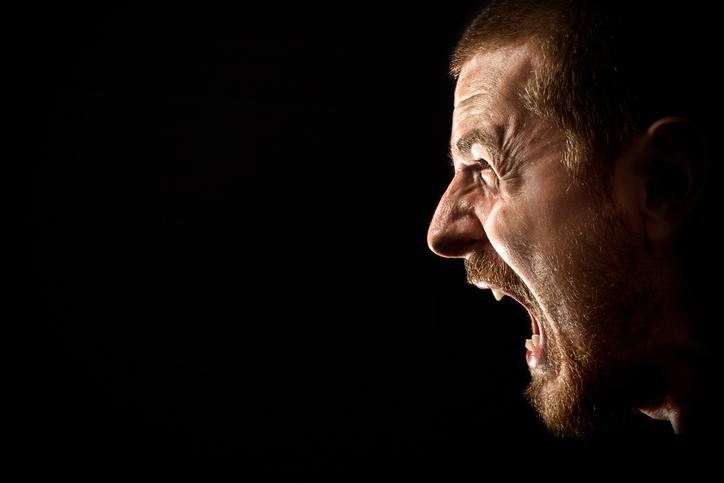
Post-liberalism is having its moment on the political Right in America.
And why not? What exactly do conservatives have to lose which they haven’t lost already? The Bushes and their noxious legacy may be in the dustbin where they belong, but if Mitt Romney and Liz Cheney represent the future of the movement, then a radical rethinking is in order.
That rethinking took the form of Trump six years ago, but today it manifests in figures like Israeli writer Yoram Hazony, Notre Dame political science professor Patrick Deneen, Yale law professor Adrian Vermeule, and journalist Sohrab Ahmari. It finds voice politically in candidates like JD Vance in Ohio and Blake Masters in Arizona, and support at outlets like the Claremont Institute and Compact Magazine.
Even CPAC, an older fixture in what post-liberals rightly attack as Conservative, Inc., just held a special CPAC conference in Hungary. It featured Viktor Orbán attacking media and progressive institutions under a banner of “God, Homeland, Family.” Mitt Romney certainly appreciates all three of these things in spades, especially if you count his six houses, but somehow I doubt he will appear arm in arm with Mr. Orbán anytime soon.
Do the Hazonys and Orbáns have a point? Do the post-liberal critics get liberalism right?
The essential argument goes like this: liberalism has become a perverse force in the West, owing to an overly abstract bastardization of Enlightenment rationalism. In fact it irrationally elevates individualism above family and community, while imposing free-market orthodoxy and global trade at the expense of good manufacturing jobs and blue-collar communities, not to mention pride and readiness.
This libertarian economic focus on limited government, combined with a willingness to cede one culture issue after another to progressives, helped create a technocratic elite with lots of money but no connection to or love for average Americans. This artificial cadre of globalists, Rothbard’s “luftmenschen,” are void of any particular feeling for America’s history, people, or land.
And an essentially neoliberal foreign policy of invade the world/invite the world puts the interests of US hegemony and globalism first instead of America first.
Thus liberalism has become anti-family, anti-God, and anti-human, making us miserable and isolated as we seek meaning in temporary material things or careers. Rather than build enduring attachments to God, family, friends, town, or tradition—to things larger than ourselves—liberalism encourages and rewards superficial choices. Worse still, it encourages replacing God or family with a saccharine higher purpose through a religious zeal for political activism. Meanwhile our decaying cities, drug-addled rural towns, and despondent, atomized young people bear witness to the manifest failures of liberalism.
There are truths here. Post-liberals certainly get the bastardization part right; 20th (and 21st) century liberalism is a caricature of the 19th century conception. Progressives certainly have won the culture. We do suffer under an unnatural group of elites whose interests are contrary to average Americans. Cities are in trouble, young people are indeed despairing, and US foreign policy appears divorced from reality. And clearly the Enlightenment came with costs, as so many things in society seem to advance faster than our psychological coping.
But the old liberalism1, the earlier and better version which took shape in the 1800s, goes strangely unexamined by the critics of post-liberalism. They conflate the two, stuck as they are in the framing and narratives of 2022. But Hazony and company would benefit from getting past their superficial readings of Hayek to consider the great champion of the old liberalism, Ludwig von Mises—who literally wrote the book on the subject.
Post-liberals should find Mises’s work compelling. He rooted liberalism in property and self-determination, a far cry from the positive rights worldview of today’s liberals. He saw highest the possible degree of autonomy and localism for political minorities (are you listening, conservatives?) as the keys to peace domestically. And post-liberals might appreciate his optimal case for a “liberal nationalism,” one which recognized organic political entities but allowed for peaceful breakaway movements when that organic shared principle failed (as it has in 2022 America). They might even begin to see free international trade as the key to peace abroad, a driver of a more restrained foreign policy.
For Mises, liberalism was a political and economic project focused on property and trade, not an exercise in liberation from human nature or freedom from material want. He had no illusions about remaking men to better fit a system.
Liberalism was an evolution in how humans organized society, intended to make us free of kings and feudal lords and dictators, free to own property, free to contract for mutual benefit, and free to live under a non-arbitrary set of laws applied to all. It was never designed to make us equal or distribute wealth, and certainly not to free us from work or hierarchy or human differences. In fact these differences drive specialization, comparative advantage, and thus trade itself. Mises’s liberalism, in stark contrast to today, was not a call for sameness or political universalism at all.
In hindsight, knowing how far “liberal” has fallen in a century, we might wish he had chosen a different title for Liberalism: perhaps Laissez-Faire or The Free Society to emphasize a focus on political and economic liberty.
Of course Mises’s liberalism never fully took hold anywhere, and where it took hold partially it soon succumbed to the political pressures of democratic voting. Its glory years had already passed even when Mises wrote Liberalism in the interwar years. And in fact, the thoroughgoing Rothbardian critique of the 20th century is based largely on this terrible metamorphosis from laissez-faire into egalitarianism, democracy, and redistribution.
Post-liberalism should reconsider that critique, and ask whether they have been bamboozled into accepting the Left’s framework. It should be a broader critique of American society itself, rather than a specific response to the Left-progressive political program. And it must be a direct assault on effete conservatism which spent the last century getting steamrolled.
There are two competing visions for the Right. One is ascendant, one is moribund. One is populist, one is elitist and technocratic. One is nationalist, one is globalist. One recognizes restraints on government and foreign policy, at least conceptually, and one tends toward grandiosity and state omniscience. One finds purchase in rural and flyover regions; one exists comfortably in Bluest America.
If the former is to prevail, it must swear off empty husks like National Review, jettison K Street and fantasies about “public policy,” and reject Foggy Bottom’s calls for “statecraft.” It must be relentlessly bottom up and anti-elite, always guarding against the co-opting camel’s nose under the tent. And it could use a good dose of Mises, Rothbard, and Hoppe to rethink the economics of a new right populism. If libertarians need culture, conservatives need economics.
Have we lost “liberal” forever? Maybe. If liberalism is dead, then liberals killed it. I’m doubtful we can ever reclaim it. Perhaps we need a new word for organizing society through property, peace, trade, and sound money.
[1]
1. Many libertarians and conservatives attempt to distinguish themselves using the tired “classical liberal,” which elicits nothing but eye rolls and contempt from the Left.





